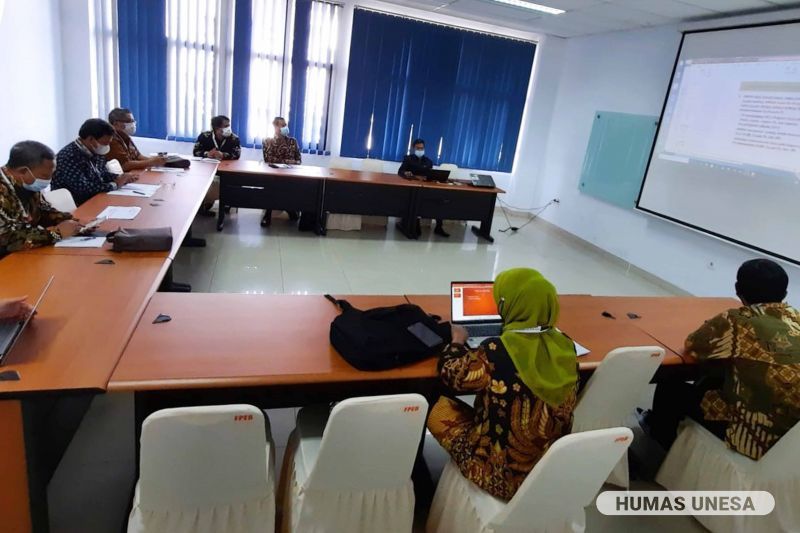
www.unesa.ac.id
Unesa.ac.id, Surabaya-The State University of Surabaya (UNESA) together with the State University of Gorontalo (UNG) and the State University of Yogyakarta (UNY) in a group discussed 'Optimizing the Vocational Program at LPTKNI' in a parallel session at the State Education Higher Education Leadership Forum (FPPTKN) meeting which took place in Bandung.
On the second day, Friday (04/6/2021), 12 LPTKN held discussions or parallel sessions with the group system at the FEB UPI Building. The universities involved are divided into five groups, each of which will discuss, discuss and formulate important and strategic themes around 'Strengthening Institutional and LPTK Resources in Order to Prepare Future Teachers in the MBKM Era'.
On that occasion, UNESA discussed three crucial topics, namely the challenges and future Vocational policies, the current condition of Vocational Studies at LPTKNI, and optimizing Vocational Studies at LPTKNI. In the Unesa discussion paper, it was explained that the challenges and Vocational policies were the industrial revolution 4.0 which made all aspects of life undergo a massive shift.
There were around 1.5 billion workers who were replaced by machines during 2015-2025. There are many jobs that are currently and slowly disappearing and being replaced by new jobs. It is estimated that 65 percent of primary school students in the world will be faced with unprecedented employment opportunities.
On the other hand, the unemployment rate has increased from year to year. In addition, there is a gap between the need for competence in the industrial world and the need for employment opportunities for graduates. In other words, it is difficult for companies to find competent personnel, while graduates have difficulty finding work. Investigate, this is the impact of the Indonesian education system which places too much emphasis on hard skills rather than soft skills. Therefore, with the recent new regulations, LTPKN needs to refocus its program to revitalize vocational education.
Regarding the vocational conditions at LTPKNI so far, UNESA explained several notes. First, the governance of the vocational program is still in each faculty. Second, lecturer competency certification is not sufficient. Third, the proportion of practical and theoretical curriculum has not met 60:40. Fourth, the nuances of lectures are still thick with academics. Fifth, partnership support has not been optimal. Sixth, there are still D2 or D3 study programs and there are still names of study programs that do not match the nomenclature.
Based on these notes, UNESA proposes several strategies for optimizing the Vocational Program that can be carried out in the future. (1) Strengthening Vocational program governance, (2) strengthening Vocational curriculum, (3) increasing Vocational HR, (4) increasing publications or patents for vocational lecturers, (5) increasing guest or permanent lecturers, (6) strengthening partnerships, (7 ) improvement of student competence and achievement, (8) promotion and branding of Vocational programs at LPTKNI. (Unesa Public Relations)
Share It On:






